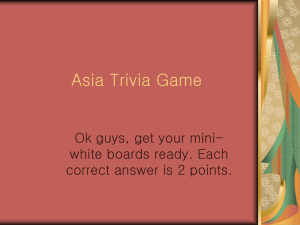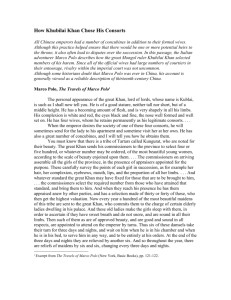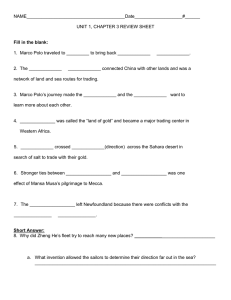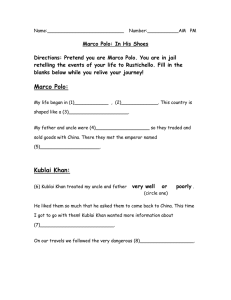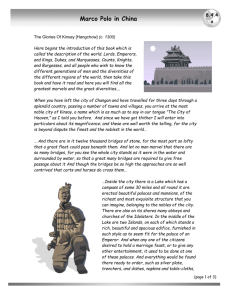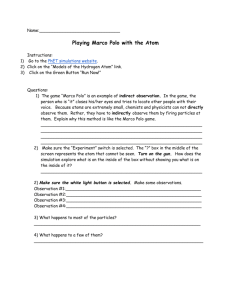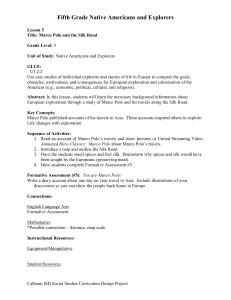The Travels of Marco Polo
advertisement
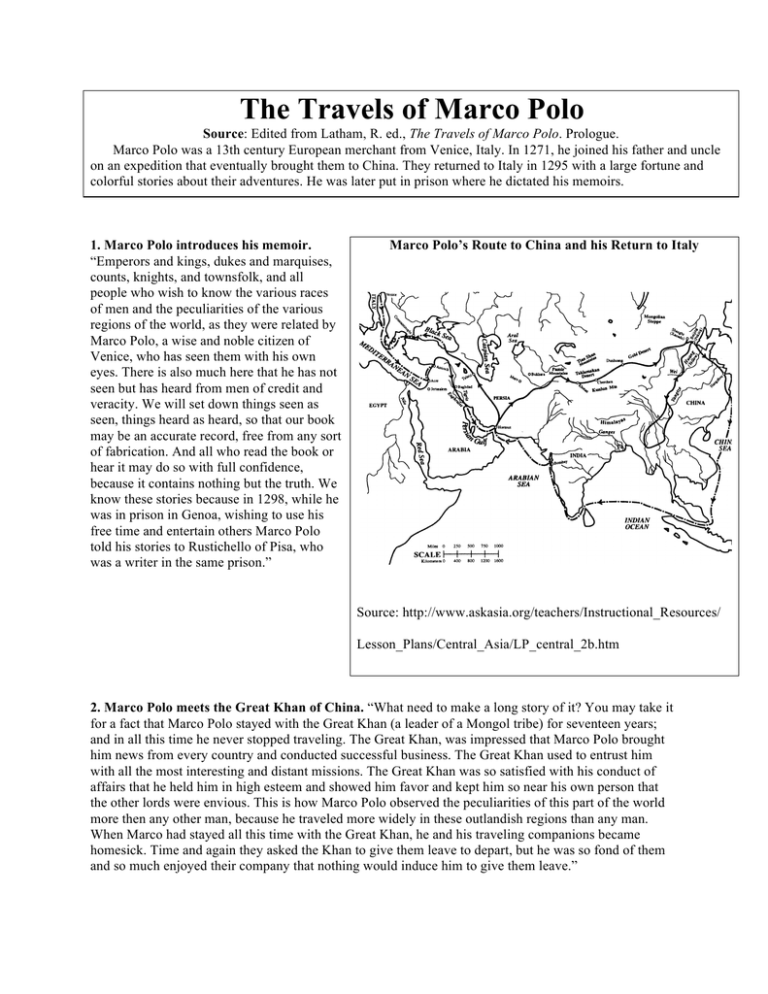
The Travels of Marco Polo Source: Edited from Latham, R. ed., The Travels of Marco Polo. Prologue. Marco Polo was a 13th century European merchant from Venice, Italy. In 1271, he joined his father and uncle on an expedition that eventually brought them to China. They returned to Italy in 1295 with a large fortune and colorful stories about their adventures. He was later put in prison where he dictated his memoirs. 1. Marco Polo introduces his memoir. “Emperors and kings, dukes and marquises, counts, knights, and townsfolk, and all people who wish to know the various races of men and the peculiarities of the various regions of the world, as they were related by Marco Polo, a wise and noble citizen of Venice, who has seen them with his own eyes. There is also much here that he has not seen but has heard from men of credit and veracity. We will set down things seen as seen, things heard as heard, so that our book may be an accurate record, free from any sort of fabrication. And all who read the book or hear it may do so with full confidence, because it contains nothing but the truth. We know these stories because in 1298, while he was in prison in Genoa, wishing to use his free time and entertain others Marco Polo told his stories to Rustichello of Pisa, who was a writer in the same prison.” Marco Polo’s Route to China and his Return to Italy Source: http://www.askasia.org/teachers/Instructional_Resources/ Lesson_Plans/Central_Asia/LP_central_2b.htm 2. Marco Polo meets the Great Khan of China. “What need to make a long story of it? You may take it for a fact that Marco Polo stayed with the Great Khan (a leader of a Mongol tribe) for seventeen years; and in all this time he never stopped traveling. The Great Khan, was impressed that Marco Polo brought him news from every country and conducted successful business. The Great Khan used to entrust him with all the most interesting and distant missions. The Great Khan was so satisfied with his conduct of affairs that he held him in high esteem and showed him favor and kept him so near his own person that the other lords were envious. This is how Marco Polo observed the peculiarities of this part of the world more then any other man, because he traveled more widely in these outlandish regions than any man. When Marco had stayed all this time with the Great Khan, he and his traveling companions became homesick. Time and again they asked the Khan to give them leave to depart, but he was so fond of them and so much enjoyed their company that nothing would induce him to give them leave.” 3. The Return of Marco Polo. “Marco had just returned from India by a voyage over strange seas and had much to report of his travels. When the Great Khan saw that Niccolò, Maffeo (Marco’s traveling companions), and Marco were leaving, he ordered all three into his presence and gave them two passes allowing them to travel freely throughout his kingdom. He entrusted them with a message for the Pope. Then he fitted a fleet of fourteen ships with, at least four or five carried crews of 250 to 260. When the ships were ready, Niccolò, Maffeo, and Marco left the Great Khan, who supplied them with provisions for two years. They sailed three months till they came to the island of Java. I assure you that they sailed over the Indian Ocean eighteen months before reaching their destination. And they observed many remarkable things, which will also be described in this book. Now let me tell you the simple truth. When they embarked, they numbered fully 600 souls, not counting the seamen. Of this number every one died on the voyage, except only eighteen.”
